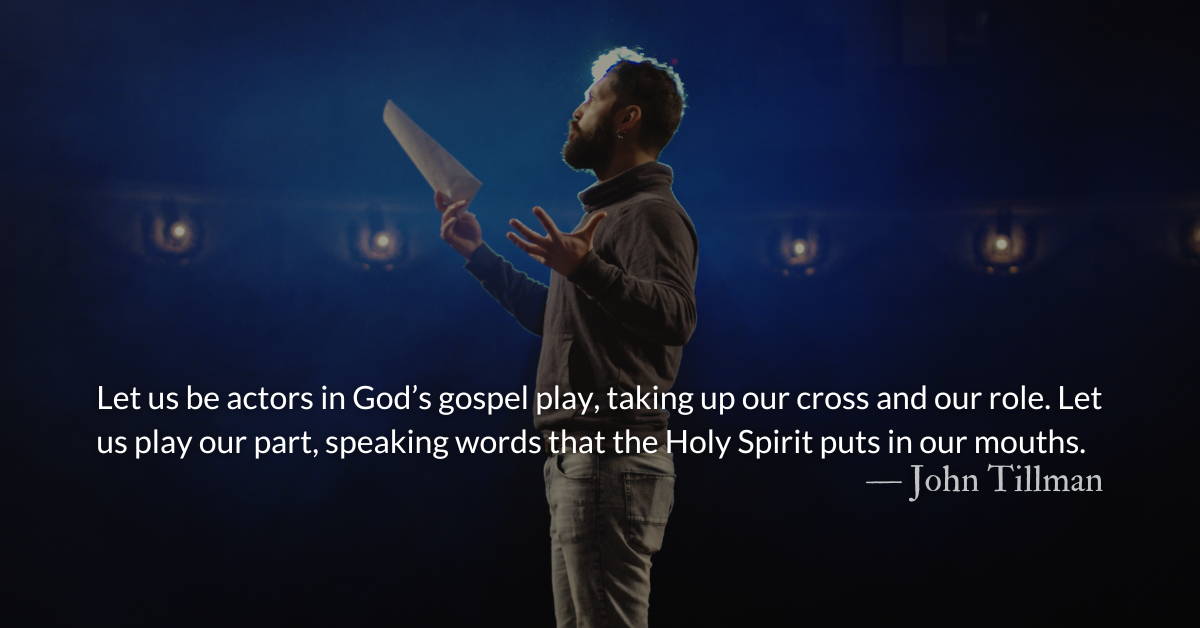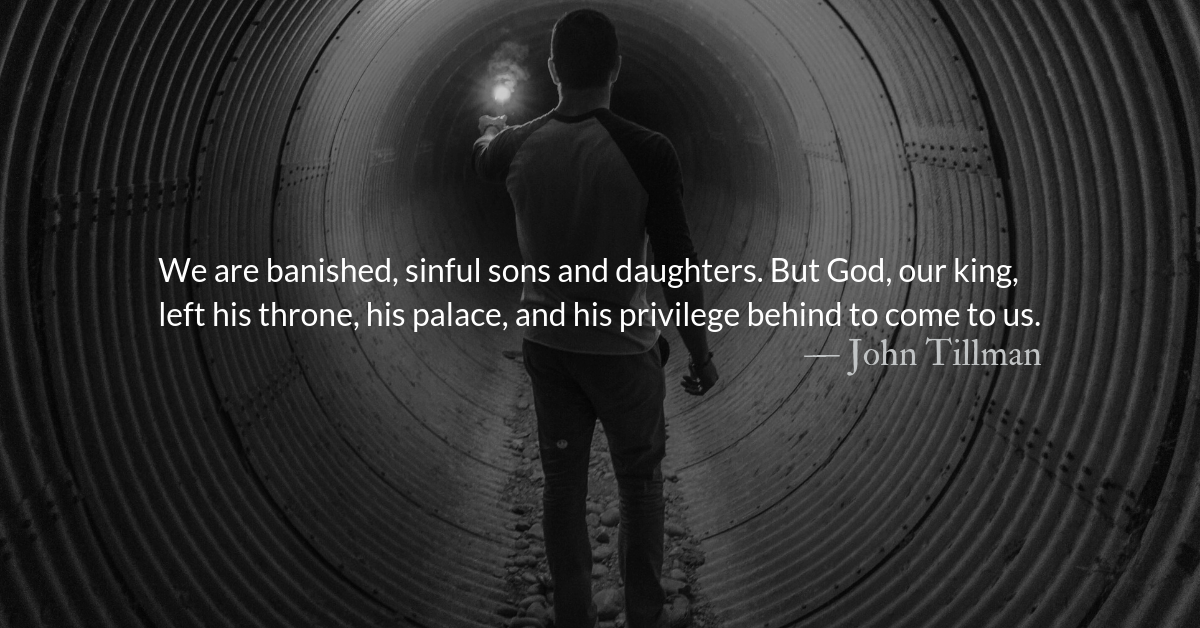Scripture Focus: 2 Samuel 14.1, 19-20
1 Joab son of Zeruiah knew that the king’s heart longed for Absalom…
19 The king asked, “Isn’t the hand of Joab with you in all this?”
The woman answered, “As surely as you live, my lord the king, no one can turn to the right or to the left from anything my lord the king says. Yes, it was your servant Joab who instructed me to do this and who put all these words into the mouth of your servant. 20 Your servant Joab did this to change the present situation…
Reflection: Joab’s Play
By John Tillman
Joab is one of the most fascinating and frustrating characters in the Bible. On one page, he’s a heroic general and David’s loyal friend. On the next, he’s an out-of-control assassin. He’d risk life and reputation to carry out David’s will, even when it was murder. Then he’d risk the same to subvert David’s will, even when it was peaceful.
In this chapter, Joab acts not as a military tactician but a dramatic one. He writes a script, a compelling, emotional story. He casts an actress, a wise woman in her own right. He plans the production for maximum effect on David and the public opinion of the court.
Plays often carry great truth and wisdom. Joab, as playwright, gave his actress these wise words: “But that [banishment] is not what God desires; rather, he devises ways so that a banished person does not remain banished from him.” Joab wrote a gospel play for David. Why? “To change the present situation,” the wise woman tells us.
Joab pricked David’s conscience to bring Absalom home. But Joab only cared about David, not Absalom. Also, Absalom was unrepentant. In this same chapter, Joab ignored Absalom until he burned down Joab’s field to get his attention. Later, when commanded by David to spare Absalom, Joab killed him. Joab’s play was to benefit David, not Absalom.
Despite Joab’s callous reasoning, dishonesty, and inconsistent character, his words hold truth. God devises ways for us, the banished, to come back to him.
But God’s plot goes beyond the shortcomings of Joab’s play. God, the King of Kings, doesn’t have to be shamed into forgiving us. God initiates and accomplishes our return. God doesn’t receive us just to make himself feel better or look better. It’s us he wants, not good PR.
Unlike Absalom, we don’t need to burn anything down to get God’s attention. He doesn’t say, like David, “Come back, but you can’t see my face.” With repentance, we are fully welcomed in. And unlike Absalom, who ended his life hung in a tree, Jesus hung in a tree for us.
Let us be actors in God’s gospel play, taking up our cross and our role. Let us play our part, speaking words that the Holy Spirit puts in our mouths. Let us have faith that if we let the gospel play out in our lives, our words and actions can “change the present situation.”
Divine Hours Prayer: The Request for Presence
Protect me, O God, for I take refuge in you; I have said to the Lord, “You are my Lord, my good above all other.” — Psalm 16.1
– From The Divine Hours: Prayers for Summertime by Phyllis Tickle.
Today’s Readings
2 Samuel 14 (Listen 5:57)
Revelation 22 (Listen 3:59)
Read more about Bringing Back the Banished
Our king didn’t grant us partial forgiveness, keeping us from his presence. He died in our place, hung on the tree we were doomed for…
Read The Bible With Us
There’s never a bad time to start a Bible reading plan. Find joy in the Bible with us at a sustainable, two-year pace.








